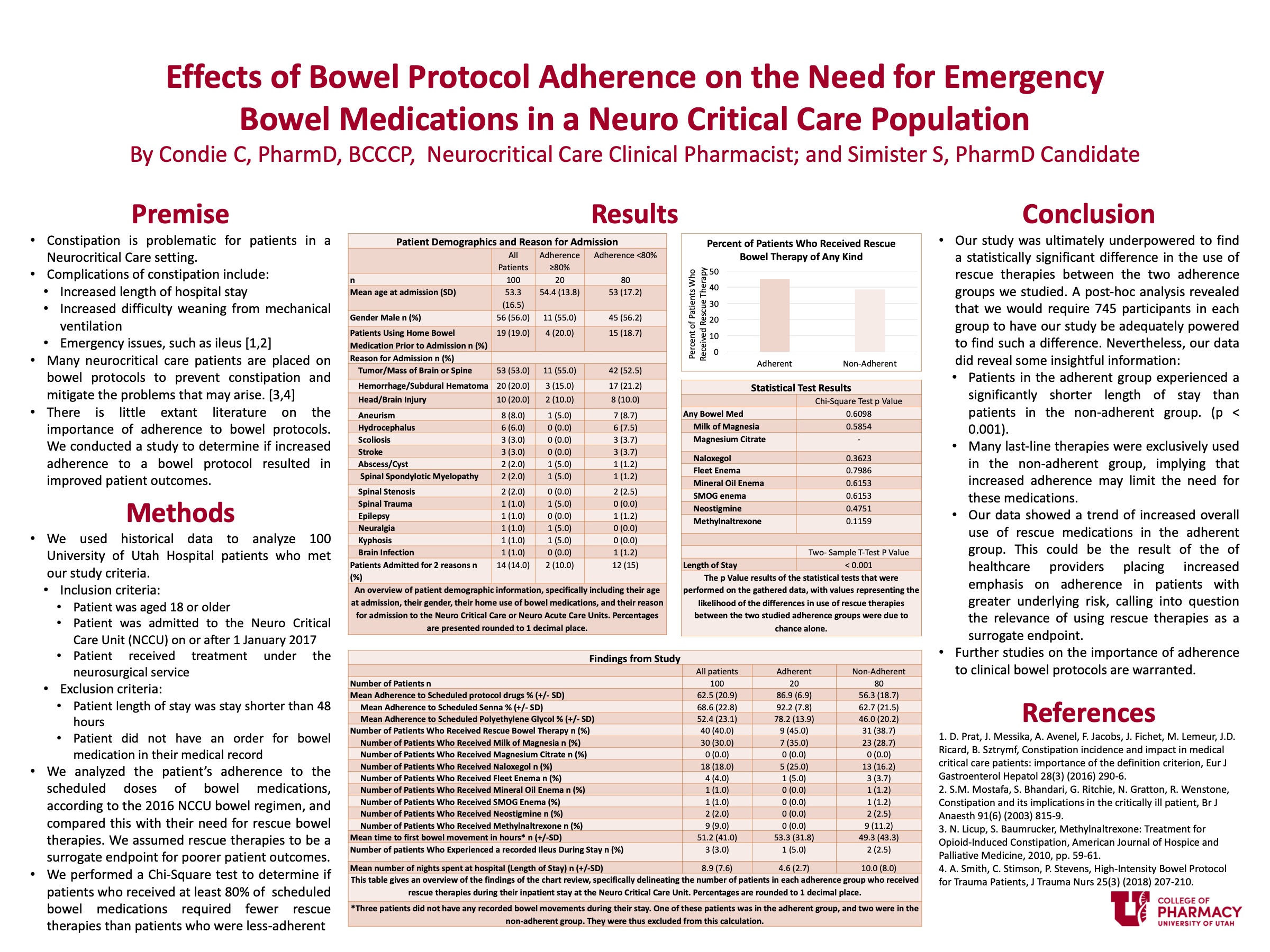Simister Spencer
Effects of Bowel Protocol Adherence on the Need for Emergency Bowel Medications in a Neuro Critical Care Population
April 29, 2020 in College of Pharmacy, Virtual Poster Session Spring 2020

Introduction: Constipation and its associated comorbidities are major concerns for hospitalized neurocritical care patients. Many institutions implement scheduled maintenance bowel regimens as an attempt to prevent constipation in these patients. In this study, we examined if strict adherence to a daily bowel regimen can prevent the need for rescue therapies.
Methods: We conducted a retrospective review on 200 Neurocritical Care patients at the University Of Utah Hospital. These patients were assessed for adherence to the scheduled maintenance bowel medications, as well as the frequency at which they required the use of the rescue bowel medications. We then looked to determine if there was a statistical difference in the use of rescue medications in patients who received 80% or more of the scheduled bowel regimen medications (adherent group) versus those who received less than 80% of the scheduled bowel regimen medications (non-adherent group).
Results: 20% of the patients we studied received 80% or more of the scheduled bowel medications. 45% of patients in adherent group required a rescue therapy, compared to 38.7% of patients in the non-adherent group. The P value obtained from the chi-squared test performed on these values was 0.6098.
Conclusion: Our study failed to show a statistically or clinically significant difference between the two adherence groups that we analyzed. This study does, however, lay the foundation upon which future studies could further analyze the importance of bowel protocol adherence.
